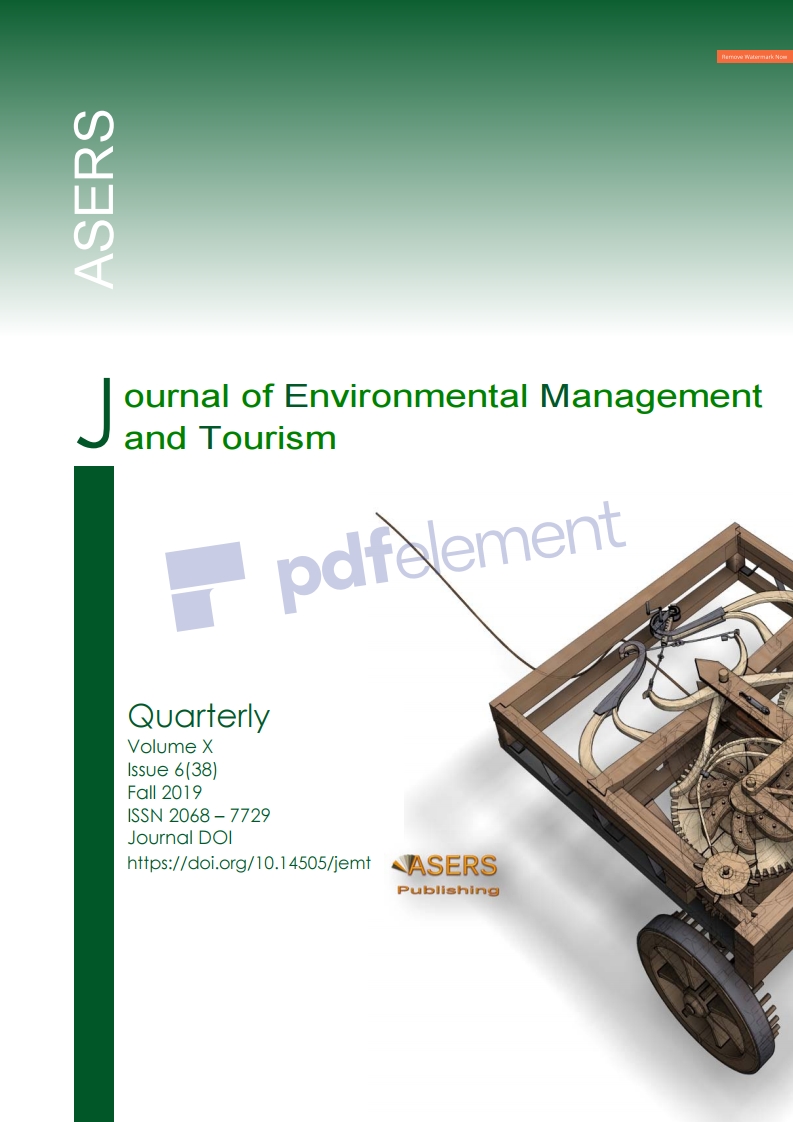Elemental Management of the Development of Tourism Business with the Preservation of the Environment
Elemental Management of the Development of Tourism Business with the Preservation of the Environment
Author(s): Ekaterina B. DEMERLE, Vera L. MOLOZHAVENKO, Alena A. POPKOVASubject(s): Economy, Tourism
Published by: ASERS Publishing
Keywords: tourism; ecosystem; management; mechanism; development of tourism;
Summary/Abstract: The management of tourism is currently based on the assumption that the movement of people is primarily an individual’s desire for knowledge of the world and is formed on the basis of natural reflexes. Therefore, tourism was previously considered as a system for transmitting impressions and information about the environment through a subjective impression among travelers. As tourism develops, it becomes an international economic category, which is determined by the desire to convey as accurately as possible the possibility of changing the place of impressions and thus form an innovative human potential. In this regard, the management of the industry in mutual development with the principle of environmental conservation forms the relevance of the research. The novelty of the study is determined by the fact that each of the controls in tourism must take into account not only the criteria of economic benefits, but also the desire to compensate for the damage caused by the impact on the environment. The authors clarify that the formation of management by elements is based on the understanding that each of the objects of management in tourism has not only an economically expressed assessment, but also is determined by its role in the functioning of a particular ecosystem. The practical significance of the study is determined by the fact that there is a need to develop programs that take into account not only the practical application of environmental principles, but also represent its development structurally for depressed regions.
Journal: Journal of Environmental Management and Tourism (JEMT)
- Issue Year: X/2019
- Issue No: 06 (38)
- Page Range: 1259-1268
- Page Count: 10
- Language: English
- Content File-PDF

